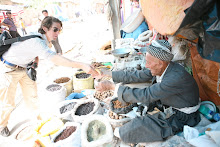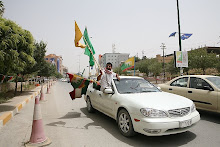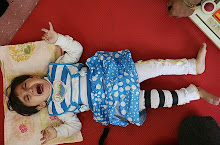One was from inside this oasis of calm, around a swimming pool surrounded by NGO workers, UN staff, fair weather journalists, and the odd celebrity. It is here that they congregate, drink, screw, dance and do an awful lot of talking. The other option was to jump head first into the tented cities, government offices, voodoo chapels and black markets, to paint a picture of a world that is harsh, corrupt, cruel yet also resilient and charming. The truth is though that these two worlds are intimately intwined, and that the decisions that effect this nation are so often made from behind the high walls of this very charming hotel. One cannot therefore tell the story of this tragedy without looking at both sides.
The Oloffson is an amazing place, unchanged for decades. It is a huge white wooden mansion with covered verandas and lush gardens that would not look out of place on Bourbon st. The doors are marked with the names of celebrities who have stayed here, with poor Van Damme being relegated to a back room next to my own. The hotel, on a hill overlooking the city was relatively untouched during the earthquake although there is a floor to ceiling crack in my bedroom wall through which I can spy on the people next door. The characters within the hotel are as special as the hotel itself.
The self styled doyen here is an old lady called Ginny, a photo journalist from the US. Before sundown her shrill NY accent can be heard shouting at the staff "A gin for Ginny" before swearing down the phone at a photo editor not willing to pay up or a driver who is late. People tend to smile politely at her but give her a wide berth - this is one battle axe not to be trifled with. There's another lady who sits with Ginny and may or may not be sleeping with her too. Every morning she spends breakfast flitting from table to table trying to piggy back on other peoples excursions though always being rejected by each.
There is also a young black man from a big US bank, trying to rebuild the financial system here. He was immaculately dressed and bizarrely lamenting the difficulties of being a white man in Haiti. I don't know if it was the drinks or his ivy league education but I didn't have it in me to to disagree. There's an enormous bald man from America called Odin who is here to sell wooden parrots to a chain of US supermarkets. Judging by the conversation I overheard, his clients are now balking at the $100,000 that it will cost to set this up. Charity and business do not always mix.
Then we have the owner, a tall white haitian with a thick gray curly mass of hair on his shoulders. Born in NY he is the lead singer of a famous voodoo band. I have yet to learn much about him, but have no doubt that he knows this city and its inhabitants better than most - a slightly aloof yet fascinating man. I am reminded here of hotel Rwanda and a day by the pool in Kigali, and I intend to know him well.
This morning christian missionaries with long beards skirted meekly past a Jordanian general, while an enormous mastiff, with a horrible protruding vagina snored on the floor. Vivaldi's Spring blared from the speakers almost managing to drown out the horns and cries from outside. Looking at this scene, it is easy to understand why so many Haitians are skeptical of aid workers and the promises they make. The private jets at the airport will do little to dispel this unfortunate image.
But before I go any further, I must say that it is very easy to be cynical about the reconstruction effort. That it is in the hands of Bill Clinton makes it an even easier target, but the fact must always remain that none of these people need to be here, none of them need to help or to care, yet they all do. And if all they ask is an oasis to retire to at the end of the day who can blame them. As Brother Buffett told me this morning in his soft alabama lilt "everybody needs an Oasis sometimes".
I have been watching the interaction between locals and westerners here with much interest. I've heard many people on both sides complaining about the other. Haitians think that not enough is being done for them, while aid workers think the Haitians are ungracious. Many claim that they expect everything but show little or no gratitude, while haitians (and many aid workers alike) are wondering what happened to the $20 billion raised, and are horrified that they still live in such destitute poverty. I hope to find out soon why there is such inaction, such waste and so little getting done, my feeling though is that it is a combination of bureaucracy and a corrupt local government.
The first interaction I saw between locals and foreigners was on board the flight here - it was an amusing picture. There were only a handful of westerners and they were the only ones adhering to designated seating. Watching a polite aid worker on his first trip to the country telling an elderly haitian lady that in fact seat 26B was his, entertained me to no end. He never got it back. As we took off a number of old ladies started to wail and wave their hands in the air. This continued until landing, getting louder with every bit of turbulence.
Outside the hotel, the city is devastated. I know you will all have seen pictures or have impressions about the devastation but the scale is more than even I can fathom. Tented cities with hundreds of thousands of people angle deep in mud, buildings in huge sections of the town simply flattened, but not yet cleared. Huge piles of rubble in every road and people trying as best they can to keep life moving, but with every industry destroyed what can they do? Little food, little water, little hope. Just 5 minutes from the airport I drove past a crumpled body, dead on the street. Nobody stopped. I overheard someone today asking "What about the bodies?" The response was, "The dead look after themselves".














































